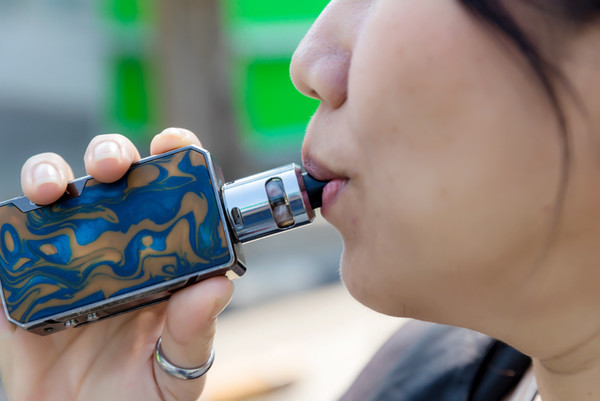The Korea Electronic Cigarette Association (KECA), a group of about 4,000 e-cigarettes vendors, said it has filed a lawsuit against the Ministry of Health and Welfare (MOHW) and the Korea Disease Control and Prevention Agency (KDCA), demanding the government correct misguided information about e-cigarettes.

The Korea Electronic Cigarette Association has filed a lawsuit against the government for allegedly causing financial damage to e-cigarette-related small business owners with incorrect information.
The KECA believes that the government health agencies damaged the reputation of small e-cigarette business owners and caused financial problems by distributing a press release recommending Koreans stop using liquid e-cigarettes on Oct. 23, 2019.
“According to the U.S. FDA’s notice banning the sale of liquid-type e-cigarettes, which was the basis of the MOHW’s decision that advised smokers to stop using e-cigarettes, tetrahydrocannabinol, a hemp-derived substance, was the main problem,” the KECA said.
In 2019, the U.S. Centers for Disease Control and Prevention (CDC) said there were 530 confirmed severe lung diseases, and eight deaths in the U.S. related to the use of liquid-type e-cigarettes, which led to the FDA to ban e-cigarettes.
“However, at the time of the announcement of the MOHW’s recommendation, there was only one suspected case of lung damage in Korea, and even the suspected case came from a person who smoked tobacco,” the KECA said.
According to a paper published in the Journal of Korean Medical Science (JKMS) in December 2021, there was no case of severe pneumonia or lung damage among liquid e-cigarette users, the group added.
Despite the research results, the MOHW’s failure to withdraw its strong recommendation to suspend the use of liquid e-cigarettes can only be understood as neglecting their duties, KECA went on to say.
The e-cigarette association also pointed out the problems in the KDCA’s press release, titled, “Liquid e-cigarettes spread fine dust more and farther than cigarettes,” distributed on July 21.
“The fine dust measured by the KDCA was based on the light scattering method, so it inevitably results in higher fine dust concentrations in areas with more moisture,” the KECA said. “Despite such problems, measuring and comparing liquid e-cigarettes with a high vapor content in the same environment as tobacco is an inappropriate research method that does not consider the specificity of liquid e-cigarettes at all.”
The KDCA’s experiment is as absurd as arguing that the level of fine dust is high when turning on a humidifier, KECA argued.
The e-cigarette association said that the government had previously recognized that e-cigs were safer than tobacco.
“According to the Ministry of Food and Drug Safety (MFDS) test results in 2017, very low levels of harmful ingredients were detected in liquid e-cigarettes compared to tobacco,” KECA said. “Notably, tar and carbon monoxide were not detected at all, and formaldehyde was only at 1/20 level and acetaldehyde at 1/500 level compared to regular cigarettes.”
Despite the huge difference in the content of harmful substances in regular cigarettes and liquid e-cigarettes, the MOHW issued a public service advertisement for smoking cessation on the premise that all cigarettes are equally harmful, KECA added.
As a result, the KECA said that the government gave the public “a false perception” that liquid e-cigarettes are just as harmful, causing enormous economic and psychological damage to e-cigarette business owners.
“We will do our best to win a lawsuit with the government by preparing all the scientific evidence and logic to resolve the injustice toward e-cigarette small business owners who have not been able to voice their voices,” KECA Vice President Kim Do-hwan said.
Regarding the lawsuit, a MOHW spokesperson said that the relevant division will thoroughly check the details of the complaint against them and respond to the lawsuit together with other agencies, such as the KDCA and MFDS.

